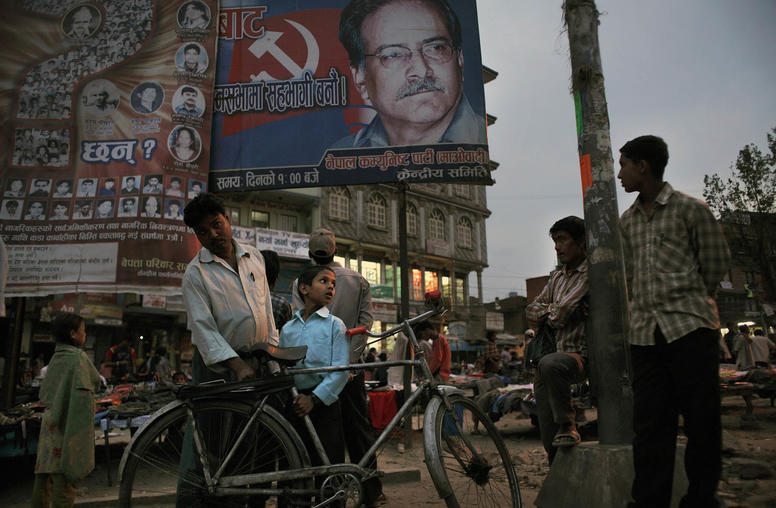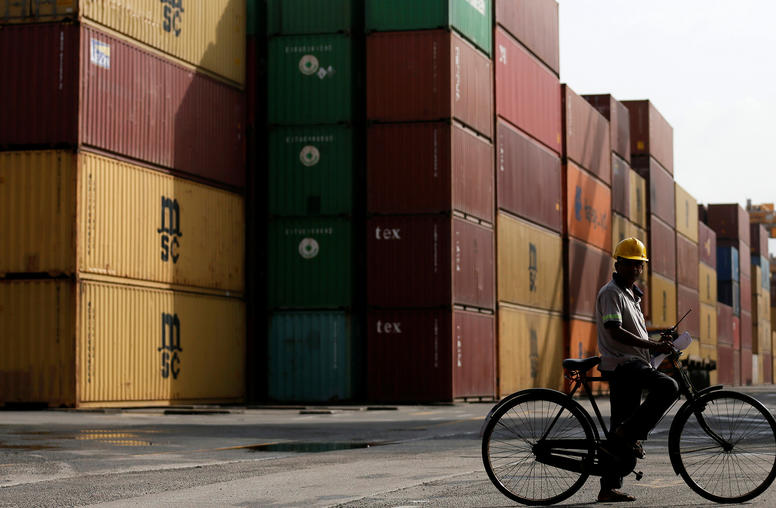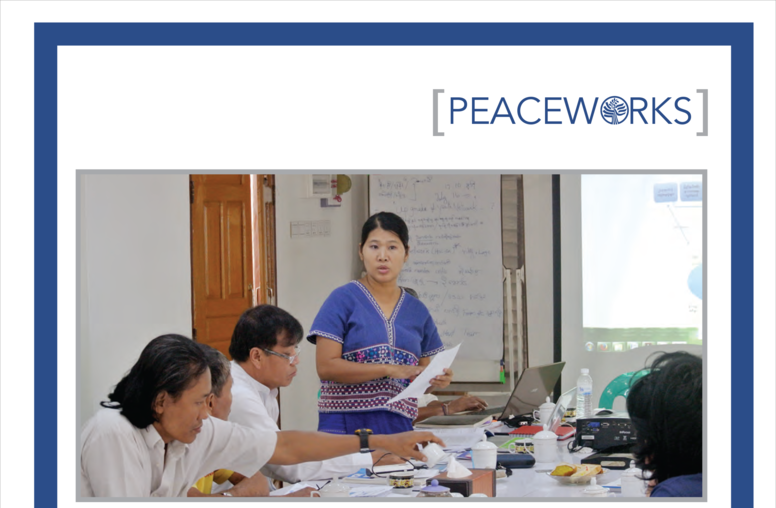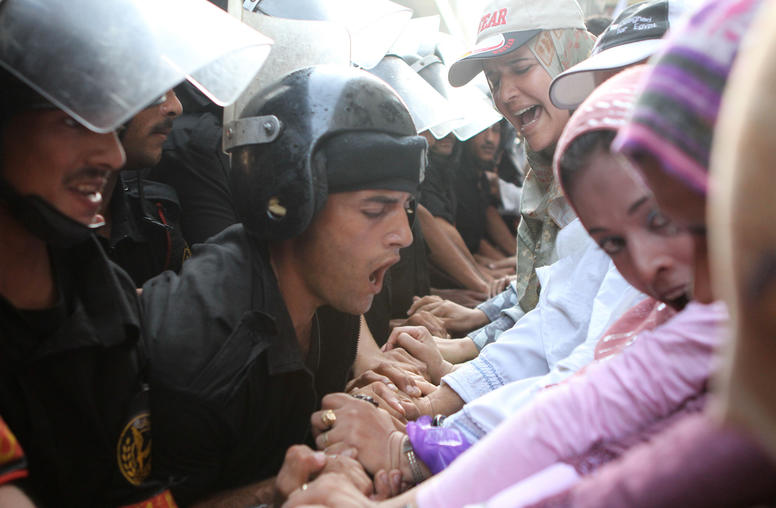USIP’s Rule of Law program is preparing to conduct a baseline survey on security and access to justice in Nepal. Acting Director of Rule of Law Colette Rausch and Program Assistant Morgan Miller visited Nepal in May to discuss final preparations with the Kathmandu-based team leading the survey effort.
In the Field by Morgan Miller
We arrived in the midst of great political uncertainty in Nepal. In early May, Nepal’s Prime Minister Pushpa Kamal Dahal, the former rebel leader of Nepal’s Maoist insurgency, resigned following a dispute with the President’s reversal of the Prime Minister’s decision regarding the dismissal of the Chief of the Nepal Army Staff. As our flight landed on May 17th, thousands of Unified Communist Party of Nepal-Maoist (UCPN-M) supporters were preparing to rally in support of Dahal.
Nepal has a long history of violent civil unrest. Most famously, in April 2006 two weeks of clashes between government forces and civilians forced then-King Gyandera to relinquish absolute rule. The nation-wide protests also led to the signing of a peace agreement with the Maoist insurgents and their incorporation into the political process. Yet while the “People’s Movement” helped restore peace and democracy to Nepal, it also resulted in approximately 22 deaths and hundreds of injuries caused by government security forces. These deaths and injuries deepened the pre-existing divide between the public and the security forces, who had long been viewed by the public as political tools of the government.
In the aftermath of the violence, USIP began bringing together Nepal Police and civil society representatives for dialogue in the hopes of reestablishing trust, opening lines for ongoing communication, and developing recommendations for strengthening rule of law and security in Nepal. USIP representative in Nepal, Karon Cochran Budhathoki, describes the initial sessions as a “kind of opening of the minds” in which both sides “saw for themselves that…both recognized the other’s challenges.” Discussing these shared challenges gave rise to joint policy recommendations in a public report released in 2007.
USIP’s current programming, which is centered around a national survey on perceptions of policing and access to justice, is another outgrowth of the initial dialogue sessions. The survey and follow-on programs have been developed in close collaboration with both civil society and police and will be carried out by local partners, with the survey conducted in approximately 90 Village Development Committees and towns this summer.
According to Karon Cochran Budhathoki, the benefits of the survey will be threefold. For the Nepal Police, the survey may serve as a tool to “incorporate community-oriented policing…and use this as a base for the policy level and their transformation.” At the same time, the survey is “a way to develop partnerships with local organizations and build their capacity.” Most importantly, however, “it’s a way to increase police engagement with local communities and use (it) as a way for the police and local communities to start talking about (what) they share in common.” Chief district officers, Nepal Police and political parties in the districts have all offered their full support and cooperation. Many stated that they feel this project is very important to strengthening the police and rule of law in Nepal and expressed their delight that USIP will be working with local partners through such a "homegrown" project.
While the May 17th Maoist protest ultimately proved peaceful, many worry about the rising levels of small-scale political violence and violent crime in the country. Many also question the ability of the new Prime Minister, who was elected by the Constituent Assembly on May 24 without Maoist support, to successfully enforce the law in such a politicized climate. According to one Policeman we spoke with, Nepal is under a “rule of consensus” rather than rule of law as “if there is some incident in the village...there are political parties (who) come up and all talk and there is consensus and then maybe the police arrest some people.” Civilians generally went farther, describing, in one case, a lack of law & order that extends from “traffic (control) to small colonies and on to the highest levels.”
Yet there is also a strong desire for change amongst civilians and Nepal Police alike. One Nepal Police representative described USIP’s survey as an opportunity to “help us to understand ourselves and how the people see us (and) it will help us to understand them. It will also show how policemen think about their problem, their situation, their strengths, their weaknesses. It will be one situation where the policemen and the people will come together honestly and (have) an opportunity to understand each other.”
View a photo gallery of USIP's work in Nepal
Of Related Interest:
Nepal in Transition: Developing Security and Rule of Law Strategies
Security Sector Reform in Nepal: the Role of Civil Society



